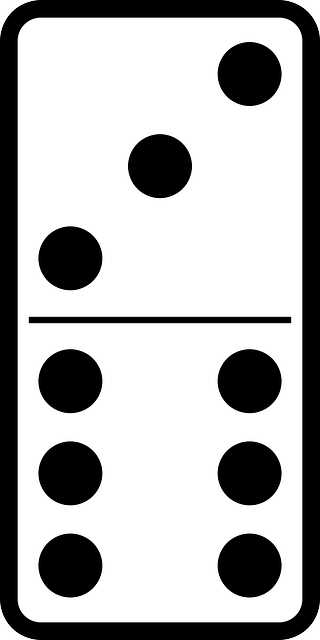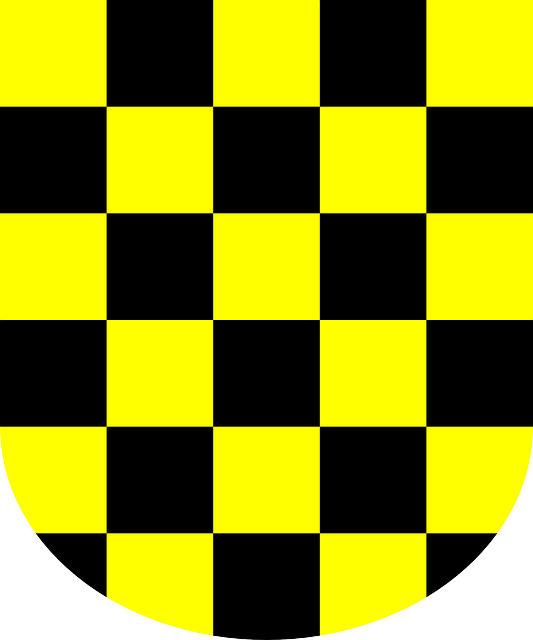بعل الذباب
بعل الذباب أوبعل ذبوب Beelzebub ( // أو // ; بالعبرية: בַּעַל זְבוּב, Baʿal Zəvûv)، هواسم معاصر للشيطان.
في المراجع المسيحية والكتاب المقدس، يشار به كإسم آخر للشيطان.
فهم دراسة الشياطين المسيحي، هوواحداً من أمراء الجحيم السبعة حسب الآراء الكاثوليكية في الجحيم. معجم جهنم Dictionnaire Infernal يصف بعل الذباب على أنه الذبابة الشيطانية المعروفة "بملك الذباب".
التوراة
مصدر الاسم بعل الذباب هوالإصحاح 2 Kings 1:2-3, 6, 16. بعل ذبوب يُفهم بأشكال مختلفة ليعني "ملك (أوإله) الذباب" أو"ملك ساكني السماء". Originally the name of a Philistine god,Ba'al, meaning "Lord" in Ugaritic, was used in conjunction with a descriptive name of a specific god. The Septuagint renders the name as Baalzebub (βααλζεβούβ) and as Baal muian (βααλ μυιαν, "Baal of flies"), but Symmachus the Ebionite may have reflected a tradition of its offensive ancient name when he rendered it as Beelzeboul.
Scholars should not be divided, in regard to the god of Ekron, between the belief that zebub may be the original affix to Baal and that it is a substitute for an original zbl which, after the discoveries of Ras Shamra, has been connected with the title of "prince", frequently attributed to Baal in mythological texts. Ba'al Zebub was used in Hebrew as a pun with Ba'al Zebul, where Zebul meant "of the manor," and in a derogatory manner Ba'al Zebub was used to offend the enemies of the Israelites.[] In addition to this last position, which is not supported by the versions, is the fact that it was long ago suggested that there was a relationship between the Philistine god, and cults of flies - referring to a view of them as pests, feasting on excrement - appearing in the Hellenic world, such as Zeus Apomyios or Myiagros.[] It is exactly this last connection which is confirmed by the Ugaritic text when we examine how Baal affects the expulsion of the flies which are the patient's sickness.[] According to Francesco Saracino (1982) this series of elements may be inconclusive as evidence, but the fact that in relationship to Baal Zebub, the two constituent terms are here linked, joined by a function (ndy) that is typical of some divinities attested in the Mediterranean world, is a strong argument in favor of the authenticity of the name of the god of Ekron, and of his possible therapeutic activities, which are implicit in 2 Kings 1:2-3, etc.
شهادة سليمان
العهد الجديد
في المأثور العهداني
في المأثور المسيحي
اليهودية
الاسم بعل ذبوب (بالعبرية: בעל זבוב) مذكور في 2Kings 1:2-3,6,16، حيث الملك أحزيا على إسرائيل، بعد حتى أصاب نفسه إصابة بالغة في سقوطه، يرسل مراسيل ليستفسر من بعل ذبوب، إله مدينة الفلستين، عقرون Ekron الفلسطينية، إذا ما كان سيشفى.
Now Ahaziah fell through the lattice in his upper chamber that was in Samaria, and he became ill; and he sent messengers and said to them, "Go inquire of Baal-zebub, the god of Ekron, whether I will recover from this illness."
— 2Kings 1:2
Elijah the Prophet then condemns Ahaziah to die by God's words because Ahaziah sought counsel from Ba‘al Zebûb rather than from God.
But an angel of the Lord spoke to Elijah the Tishbite [saying], "Arise, go up toward the king of Samaria's messengers, and speak to them, [saying], 'Is it because there is no God in Israel, that you go to inquire of Baal-zebub the god of Ekron? Therefore, so has the Lord said, "From the bed upon which you have ascended you will not descend, for you shall die." ' " And Elijah went.
— 2Kings 1:3-4
Rabbinical literature commentary equates Baal Zebub of Ekron as lord of the "fly". The word Ba‘al Zebûb in rabbinical texts is a mockery of the Ba'al religion, which ancient Hebrews considered to be idol worship.
Jewish scholars have interpreted the title of "Lord of Flies" as the Hebrew way of calling Ba'al a pile of dung and comparing Ba'al followers to flies.
انظر أيضاً
- بعل Baal
- Beelzebufo (ضفدعة ما قبل التاريخ)
- خفاش بعل الذباب
- بلايعل Belial
- "بوهيميان راپسودي Bohemian Rhapsody"
- ترويع الجحيم
- بوابة عشتار
- ملك الذباب
- Starchy Adventure Time
المصادر
- ^ biblegateway.com
- ^ "Βεελζεβούλ, ὁ indecl. (v.l. Βεελζεβούβ and Βεεζεβούλ W-S. §5, 31, cp. 27 n. 56) Beelzebul, orig. a Philistine deity; the name בַּעַל זְבוּב means Baal (lord) of the flies (4 Km 1:2, 6; Sym. transcribes βεελζεβούβ; Vulgate Beelzebub; TestSol freq. Βεελζεβούλ,-βουέλ).", Arndt, W., Danker, F. W., & Bauer, W. (2000). A Greek-English lexicon of the New Testament and other early Christian literature (3rd ed.) (173). Chicago: University of Chicago Press.
- ^ "1. According to 2 Kgs 1:2–6 the name of the Philistine god of Ekron was Lord of the Flies (Heb. ba‘al zeaûḇ), from whom Israel’s King Ahaziah requested an oracle.", Balz, H. R., & Schneider, G. (1990-). Vol. 1: Exegetical dictionary of the New Testament (211). Grand Rapids, Mich.: Eerdmans.
- ^ "The etymology of Beelzebul has proceeded in several directions. The variant reading Beelzebub (Syriac translators and Jerome) reflects a long-standing tradition of equating Beelzebul with the Philistine deity of the city of Ekron mentioned in 2 Kgs 1:2, 3, 6, 16. Baalzebub (Heb ba˓al zĕbûb) seems to mean “lord of flies” (HALAT, 250, but cf. LXXB baal muian theon akkarōn, “Baal-Fly, god of Akkaron”; Ant 9:2, 1 theon muian).", Lewis, "Beelzebul", in Freedman, D. N. (1996). Vol. 1: The Anchor Yale Bible Dictionary (639). New York: Doubleday.
- ^ "On the basis zebub, ‘flies’, the name of the god was interpreted as ‘Lord of the flies’; it was assumed that he was a god who could cause or cure diseases.", Herrmann, "Baal Zebub", in Toorn, K. v. d., Becking, B., & Horst, P. W. v. d. (1999). Dictionary of deities and demons in the Bible DDD (2nd extensively rev. ed.) (154). Leiden; Boston; Grand Rapids, Mich.: Brill; Eerdmans.
- ^ "It is not as probable that b‘l zbl, which can mean “lord of the (heavenly) dwelling” in Ugaritic, was changed to b‘l zbb to make the divine name an opprobrius epithet. The reading Beelzebul in Mt. 10:25 would then reflect the right form of the name, a wordplay on “master of the house” (Gk oikodespótēs).", McIntosh, "Baal-Zebub", in Bromiley, G. W. (1988; 2002). Vol. 1: The International Standard Bible Encyclopedia, Revised (381). Wm. B. Eerdmans.
- ^ "An alternative suggested by many is to connect zĕbûl with a noun meaning “ (exalted) abode.”", Lewis, "Beelzebul", in Freedman, D. N. (1996). Vol. 1: The Anchor Yale Bible Dictionary (639). New York: Doubleday.
- ^ "In contemporary Semitic speech it may have been understood as ‘the master of the house’; if so, this phrase could be used in a double sense in Mt. 10:25b.", Bruce, "Baal-Zebub, Beelzebul", in Wood, D. R. W., & Marshall, I. H. (1996). New Bible dictionary (3rd ed.) (108). Leicester, England; Downers Grove, Ill.: InterVarsity Press.
- ^ "For etymological reasons, Baal Zebub must be considered a Semitic god; he is taken over by the Philistine Ekronites and incorporated into their local cult.", Herrmann, "Baal Zebub", in Toorn, K. v. d., Becking, B., & Horst, P. W. v. d. (1999). Dictionary of deities and demons in the Bible DDD (2nd extensively rev. ed.) (154). Leiden; Boston; Grand Rapids, Mich.: Brill; Eerdmans.
- ^ Catholic Encyclopedia
- ^ Saracino, Francesco. "Ras Ibn Hani 78/20 and Some Old Testament Connections". Vetus Testamentum. Vol. 32, Fasc. ثلاثة (Jul., 1982), pp. 338-343.
- ^ The Babylonian Talmud, Vol. 1 of 9: Tract Sabbath - Page 186 "made themselves Baal-berith for a god"; by Baal-berith is meant the Zebub (fly) idol of Ekron, and every idolater (at that time) made an image of his idol in miniature in order to keep it constantly at hand and to be able at any time to take it out, .."
- ^ Jewish Encyclopedia - Beelzebub
- ^ Books.google.com, The Routledge dictionary of gods and goddesses, devils and demons By Manfred Lurker
- ^ Easton's Bible Dictionary
- ^ Jewishencyclopedia.com
وصلات خارجية
- : Beelzebub
- : Beelzebub
















